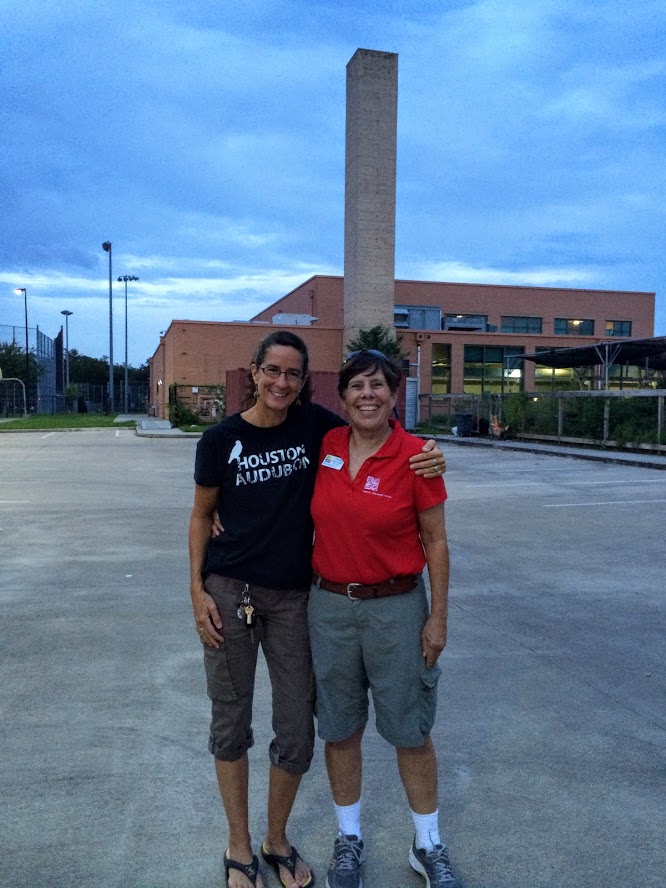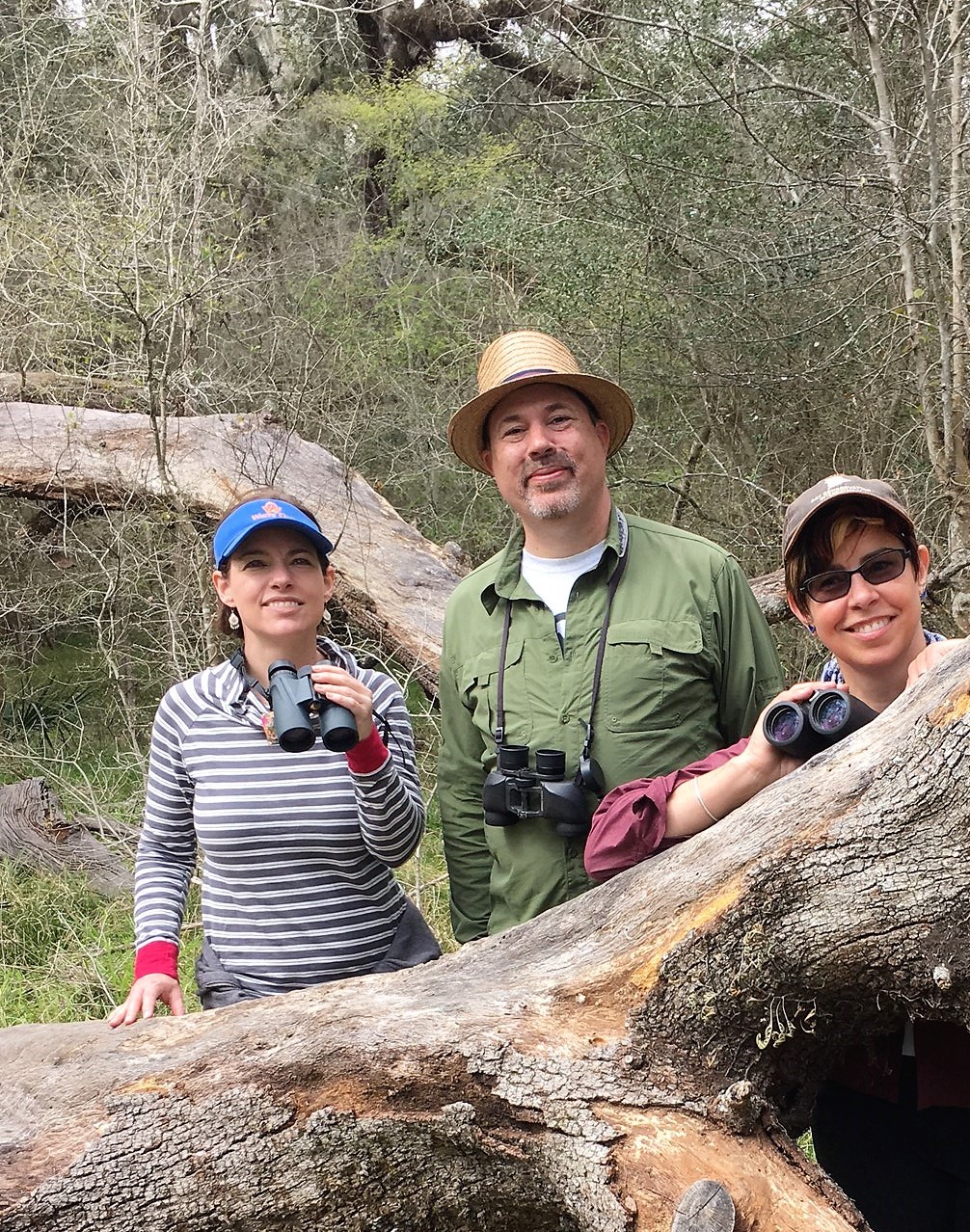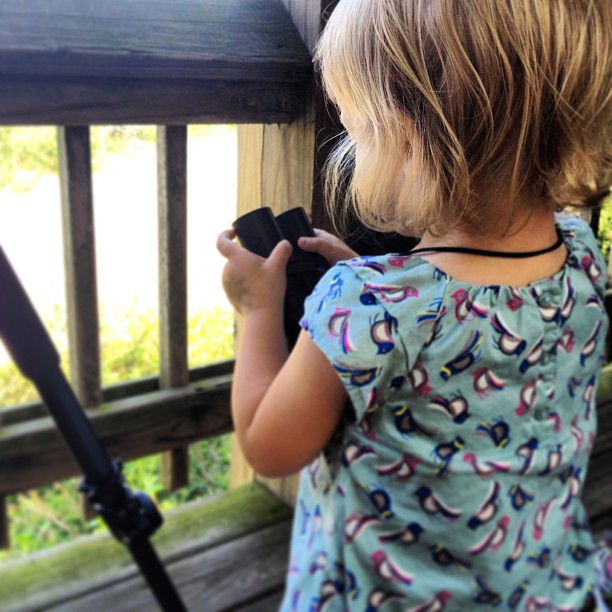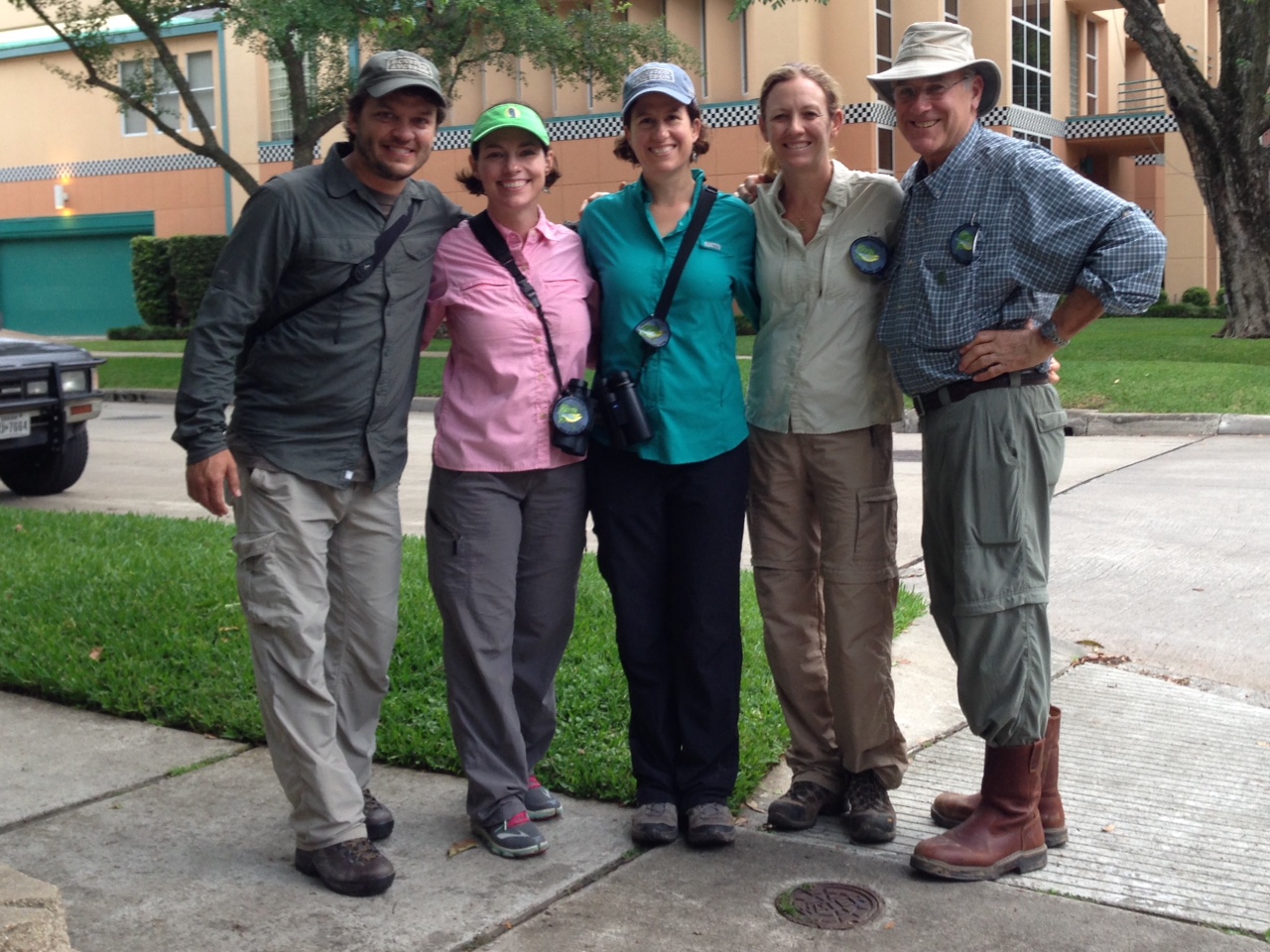A Beginner’s Quick Start Guide to Birding
Welcome to Birding!
Begin observing birds with your eyes and ears. Congrats! You’re officially a birder!
It doesn’t take much to start birding. Birds are all around us, from our backyards and local parks, to our grocery store parking lots and nearby wildlife refuges. So, you can start your journey as a birder by just going outside and appreciating the birds around you. If you are ready to dive a little deeper, though, there are a few tools that make birding a little easier and even more enjoyable – a field guide or bird ID app and a pair of binoculars.
Field Guides
A field guide is often a new birder’s best friend. Many birders still carry around a hard-copy of their favorite field guide. There are many to choose from, including guides from Sibley, National Geographic, Kaufman, Peterson and more. If you’re looking for an inexpensive guide, you should be able to find options at local secondhand bookstores.
Bird Identification Apps
In the age of smartphones, you no longer need to carry around a book while birding if you don’t want to. There are several excellent apps to help you identify birds by both sight AND sound. Some of our favorites are:
Merlin Bird ID – This free app by the Cornell Lab of Ornithology has a Bird ID Wizard built in that uses your location, the time of year, and your description of the bird to help you figure out the species – a great feature for a new birder. The explore function also allows you to see what birds are in your area or allows you to search for a specific species. This app also has a photo ID tool that allows you to snap a pic of the bird and upload it for identification! In 2021, Merlin added a Sound ID feature that allows you to record and upload a bird call for identification!
The Audubon Bird Guide App - The Audubon Bird Guide app is a free and complete field guide to over 800 species of North American birds, right in your pocket. Built for all experience levels, it will help you identify the birds around you, keep track of the birds you’ve seen, and get outside to find new birds near you.
The Sibley eGuide to Birds – This app is $19.99 in the app store, but provides all the features of the hardcopy Sibley Field Guide into an easy-to-use app on your phone. This includes range maps, calls, descriptions, illustrations and more.
Other apps to check out: Peterson Birds, iBird Pro, National Geographic Birds: Field Guide to North America
Binoculars
You’ve got your field guide (or app), and are ready to find your first pair of binoculars! There are several excellent resources for you in the Houston area. The folks over at Land Sea and Sky are experts in helping people find the right binoculars. Want to shop online? Check out Redstart Birding.
Binoculars come in a wide range of styles, sizes, and price that can be confusing. Check out REI’s Primer on How to Buy Binoculars to understand all the ins and outs of this birder’s tool.
Improve Those Skills
So you're ready to improve your skills and go from a "baby birder" to a full-fledged birder? You may be interested in learning tips, tricks, and advice from seasoned birders. Houston Audubon has several options for you to make the leap from a baby birder to a fully-fledged birder.
Take a class:
We have regular birding classes lea by expert birders and educators. For more information and a schedule of these classes, visit https://houstonaudubon.org/birding/birding-classes.html.
Join a Bird Survey:
Another very helpful resource for new birders is other birders! More experienced birders can help you identify tricky birds and also help you begin associating birds with specific habitats and times of year. Come on a Houston Audubon "bird survey", held at many parks around the city. Don't be intimidated, these "surveys" are more like bird walks that welcome birders of all skill levels! You can also join a watch party to meet fellow bird enthusiasts who will be happy to answer your questions and welcome you into the birding world!
Become a Community Scientist:
What better way to improve your birding skills than to practice while also helping scientists? Join a community science program hosted by Houston Audubon and our partners! To see a list of local opportunities, visit the community science page!
Birding Etiquette
RESPECT THE BIRDS: Maintain a safe distance from the birds and their habitat. Avoid moving into sensitive areas where birds may be nesting.
SOUND: Many people bird by ear, so keep your voice low enough that you can hear the sounds of nature around you. If you need to take a phone call, simply step away from the group.
SHARE THE VIEW: By all means, bring your camera to capture beautiful moments! Be sure you give others a chance to see that great view, too, by stepping aside once you’ve had your fill.
OBSERVE THE OBSERVERS: A neat way to find a bird without having to ask is by examining where everyone is looking. Make note where the binoculars are pointing, follow your eyes/binocs to that location, and frequently you can “get on” the bird in no time.
READ the ABA Ethics Guide




